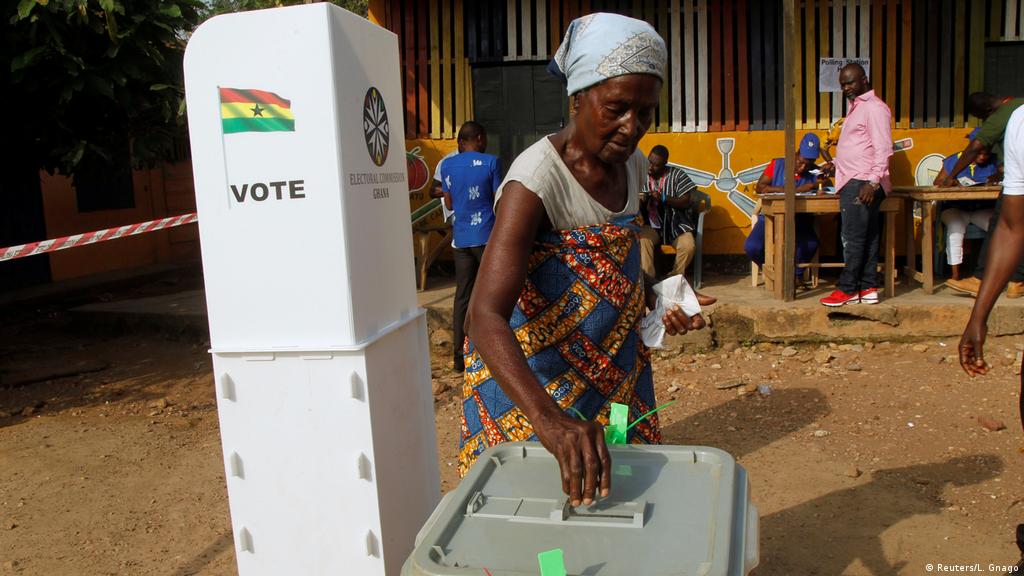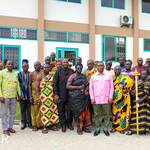The public endorsement of political incumbents by chiefs has a positive effect on the political fortunes of the said candidates.
This is the finding of a research conducted by a Democracy and Development fellow of the Centre for Democratic Development (CDD-Ghana), Dr George Ofosu, and his colleague from the London School of Economics, Sarah Brierley, in three traditional areas in the Bono Ahafo, Bono and Ahafo regions.
The researchers sampled about 1,124 electorate in the 2020 election cycle and found that political endorsement of politicians increased support for said candidates by about 4.6%.
The researchers exposed would-be voters to news items of their chiefs publicly endorsing the incumbent, who happened to be HE Nana Addo Dankwa Akufo-Addo, and found that electoral support for the candidate was higher among the exposed group.
The subjects of the research reported that they found the endorsed candidate to be more likeable once they heard about the endorsement.
It also emerged that the exposure had the most positive effect on persons who were not affiliated to the endorsed candidate, yet have a positive assessment of [the performance of] the endorsing chief.
Such people tended to view the candidate as trustworthy and likely to deliver development to the local community and the nation if they won the election. This applies to about 60% of respondents.
Interestingly, it emerged that chiefs in Ghana do not wield coercive force over the electoral, but exercise a more persuasive kind of influence over the electoral choices of their subjects.
Moreover, it was found that chiefs in rural communities wielded greater influence over their subjects that their counterparts in more urban parts of the country.
The researchers noted that chiefs hardly endorse opposition candidates during the election period, and this was perceived as a source of incumbent advantage.
The research was carried out at Drobo, Duayaw Nkwanta and Techiman.
The Chief Director at the Ministry of Parliamentary Affairs, Dr Evans Aggrey Darko, described the political behaviour of these chiefs as “being largely based on survival instinct.”
He noted that “all humans want advancements and any proper chief will do whatever it takes to bring the necessary developments to areas.”
He also described these endorsements as a form of social contract signed between the chiefs and their people and the endorsed candidate, so “woe unto any candidate that fails to deliver the public goods that were promised to the chiefs and people during the campaign period.”
He, however, warned that in a volatile environment, especially when there’s conflict in a community, such an act could deepen disputes, as it would alienate the other side of the conflict and electoral outcomes could worsen the political situation.
With the advent of a modern democratic dispensation in Ghana many of the roles previously played by the chiefs were taken over by the State, leaving the chiefs with virtually no political role in national governance.
The Fourth Republic’s Constitution of 1992 explicitly bans chiefs from active partisan politics
Section (1) of Article 276 of the 1992 Constitution states: “A chief shall not take part in active party politics; and any chief wishing to do so and seeking election to Parliament shall abdicate his stool or skin.”
Section (2) of the same article goes further to state: “Notwithstanding clause (1) of this article and paragraph (c) of clause (3) of Article 94 of this Constitution, a chief may be appointed to any public office for which he is otherwise qualified.”
However, some chiefs in the past have openly supported one political party or the other and urged their subjects to follow their footsteps.
Across the country, some chiefs openly declared their support for the New Patriotic Party’s (NPP’s) candidate, President Nana Akufo-Addo or ex-president President John Dramani Mahama of the National Democratic Congress (NDC).
Chiefs and the authority they carry have profound respect no matter how small their domain is, to the extent that any moral offence committed by a chief or a person with such intentions automatically renders one incapable of holding such title.
The functions and roles of politicians and chiefs are inextricably linked at the local governance level, a partnership that should promote socio-economic development of areas that fall under their jurisdiction.
There may be nothing wrong if a chief decides to applaud a president or government in public because chiefs and the local assembly are to liaise to promote the development agenda of their communities.
But, when the chief goes to the extreme with outright partisan political pronouncements, then it becomes problematic and rather renders the chieftaincy institution a meaningless one.
By Selorm GBORBIDZI, Accra
- Prof Opoku-Agyemang seeks medical treatment abroad - 30 March 2025
- 3 missing in suspected pirate attack on fishing vessel - 29 March 2025
- MPs to blow GH₵41.2m monitoring GH₵55m projects - 29 March 2025

